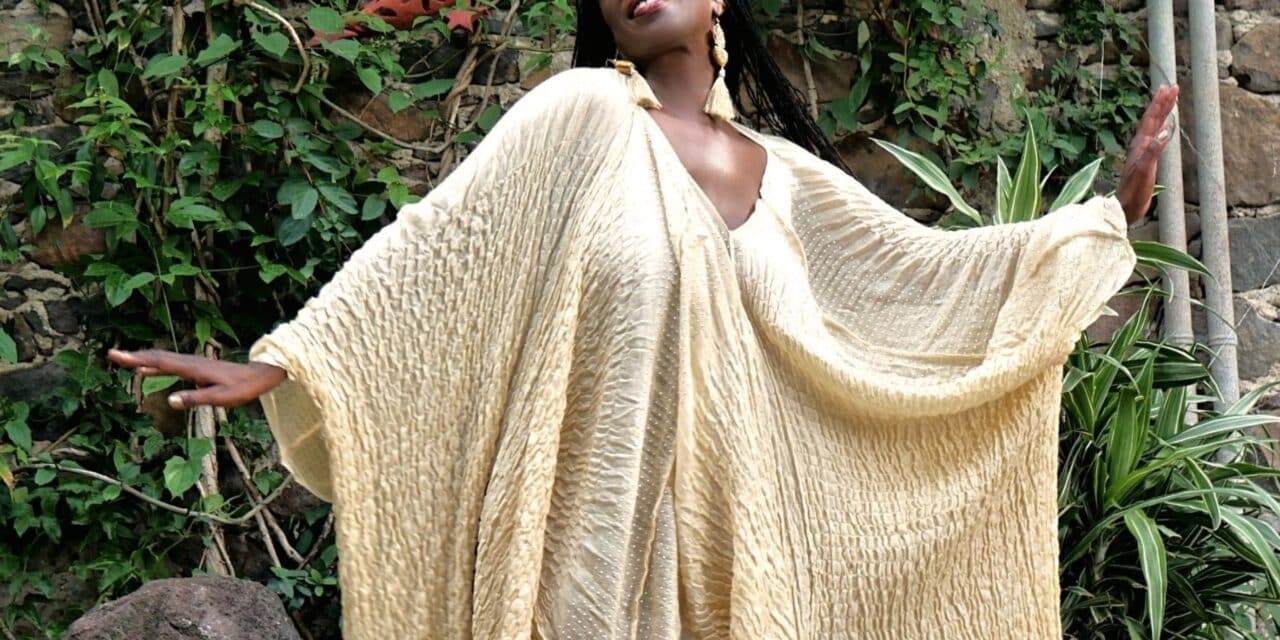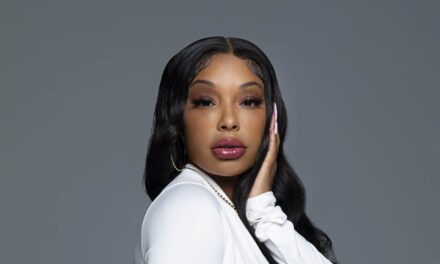Renowned ancestral jazz vocalist, songwriter, producer and cultural innovator BOUVIER returns with her most soul-stirring release to date ‘MOTHER TONGUE MANTRA’, the lead single from her forthcoming third album, Mother Tongue: An Ancestral Jazz Journey, to be released via The WISE Fund’s Soul Fusion program. A meditative fusion of ancestral jazz, Afro-spiritual music, and deep-rooted storytelling, the track is a tribute to maternal wisdom, cultural memory, and the universal rhythms that connect Black people and all humanity across time and space. Written and produced by Bouvier herself, and arranged by Grammy Award-winning bassist Ben Williams, ‘Mother Tongue Mantra’ features a world-class ensemble from Mexico and Cuba, including Carlos Vargas on piano, Sergio Carillo on bass, Isidro Capilla on drums and percussion, and Freddy Thomson on alto saxophone.
A deeply personal composition, ‘Mother Tongue Mantra’ was born from a dream and ancestral visitation, a recurring theme in Bouvier’s songwriting. Inspired by her Gullah Geechee heritage and her experience as a caregiver to her mother – who has battled Lewy Bodies dementia and Parkinson’s for 14 years – the song explores how Afromusic serves as a sonic bridge between generations, a vessel for cultural transmission, and a source of spiritual grounding. Driven by an ethereal vocal delivery, chant-like cadence textures, layered instrumentation, and poetic lyricism, the song echoes the oral traditions of the African Diaspora, carrying the weight of history while offering a soothing balm for the present. “This song came to me in meditation,” Bouvier shares. “It’s a reflection on how mothers – both biological and symbolic – shape our souls, pass down knowledge through sound, and remind us of who we are.”
“‘Mother Tongue Mantra’ is described as a tribute to maternal wisdom and cultural memory. Can you share the story behind how the song came to you in a dream and how that shaped its creation?”
Thank you so much for your interest in my music. The song came to me during a fitful sleep that became a nightmare about my very ill mother’s death. My mother has Lewy Bodies Dementia, which includes Parkinson’s. I’ve been caring for her about 14 years. As occasionally happens during periods of trauma, my maternal grandmother appeared to me in a soothing dream humming the rhythms and melody of a song that would become “Mother Tongue Mantra.” I recorded it on my phone as soon as I awakened. I’m a cultural anthropologist mostly studying Diasporas and how people transmit culture from a long-lost homeland, especially Afrodescendant people worldwide over millennia. I sang and scatted the soothing song that came from my beloved grandmother in the dream over weeks.
Then I was inspired by the concept of mother tongue in anthropology and linguistics, which says, in part, that rudimentary elements of language and culture are even felt by embryos during the gestation, preparing them to learn them once they’re born. I also often reflect on my and others mothers’ legacy on future generations including my impact on my own child, as well as theirs on me. It is powerful and expressed in nature as well as our often overlooked shared humanity birthed in Mother Africa. After weeks of contemplation, prayer and meditation using the sounds of the song and immersing myself in the culture theory I know as an anthropologist, woman of faith, longtime, lyrical poet, a mother, and environmentalist, I also wrote the lyrics.
“You’ve mentioned that your Gullah Geechee heritage deeply influences your music. How did that cultural background specifically shape the sound and message of “‘Mother Tongue Mantra?”
I grew up in Philly but had a Gullah Geechee maternal line mostly from the Columbia, Charleston/Edisto Island, South Carolina region. They had certain worldviews, approaches to music, and even a cadence of speech and prayer that were reinforced by my Grandmother’s example and my upbringing in The Black Church.
Singing wasn’t just entertainment. It was divine breath, a language and channel to the Creator that could change consciousness and the world, creating “a way out of no way,” giving hope, and courage through the stories and singing of my elders, whose parents eventually escaped or defeated Jim Crow and whose parents survived slavery and the Trail of Tears. Singing was often acapella, perhaps with handclapping and stomping, as that was seen providing a more direct channel to the Lord, that is divine energy, experienced through dancing and singing in the spirit of the Holy Ghost for my women elders.
Singing was a form of prayer and praising. And my grandmother was always humming these rhythmic song-prayers, a soundscape of my formative years that I took for granted until I became an adult and needed to find solace through various life trials and tribulations. Then I found myself doing the grandma’s same humming-scatting process. I figured if my faith-filled grandmother, who was born to once enslaved but emancipated USA Africans could sing-pray her way through her severe challenges, surely the same techniques could help me.
This approach to melody, rhythm, harmony, and language not just as music but lifestyle became a private spiritual practice since childhood, almost like a form of chanting, sound healing, psalms, or prayers that would help me manage various stresses and life transitions. In fact, as a result, I am always hearing music, attuned to the changing internal and external sounds of my environments and stringing them together to create improvised music in my head and heart.
While I knew that I was a musician by heritage and spiritual practice, it took time and the encouragement of others to accept an identity as a musical artist and be confident in this role. There have been many guides but I only can share a fee here. In the mid-2000s as I was pondering whether I should step out into the world of music, I met Quincy Jones at California’s famed Monterey Jazz Festival. As I was already well into my fifties then, I asked him if it were too late for me to start a career as a professional musician. He simply but powerfully said, “Not if you have something to say.” And I certainly have a lot to say. His words still empower me in this sometimes intimidating new field of music although I’ve been singing and songwriting all my life from my culture for spiritual purposes.
I’ve been through a lot of trauma in life. But 2020 brought huge stresses with my second divorce, transition to a new job, the Covid Pandemic, the devastating California fires, as well as caring for my mother whose dementia was worsening, and other family issues. I began to use my private, jazzy-bluesy heritage singing even more for stress management. And through a series of what seemed like ordained coincidences that was actually the year I started getting vocal coaching from virtuoso jazz vocalist, Jose James. The story of how we rediscovered each other could be a separate book, since we remembered we actually knew each other when he was a teenager in Minneapolis regularly performing at a coffee shop next door to the place where I was doing my doctoral dissertation fieldwork. I used to go there almost daily, sometimes with my beloved daughter, to hear them play, encourage them, and get their delicious coffee.
He liked and encouraged my singing style, teaching me exercises that refined my technique and have even become part of my meditation practice. He gave me confidence to go public with my music. During one of the lessons I revealed to him that I had been singing acapella for people to calm them through the pandemic quarantine, and that I wanted to do a spiritual jazz album because I knew my singing calmed people from the times as a youth I used to volunteer after school singing to the dementia patients where my mother worked. But I still thought it was too late fir me to do a serious album. But Jose had faith in me.
That conversation with Jose was the genesis of my first album, “Blachant,” the name I use for my jazzy-bluesy chant-like singing I inherited from my Gullah Geechee heritage. This vocal style also emerged through other influences too like my early exposure to Gregorian chants as a Protestant Catholic school student. Growing up in a very diverse neighborhood hearing prayers from the community synagogue in Saturdays, raised in a Pentecostal church where people spoke in tongues, growing up with Haitians hearing creole spoken, the soul/funk/jazz fusion of The Philly Sound of Gamble and Huff, Phyllis Hyman, and Rachelle Farell were early influences adding to my maternal Gullah Geechee sonic base.
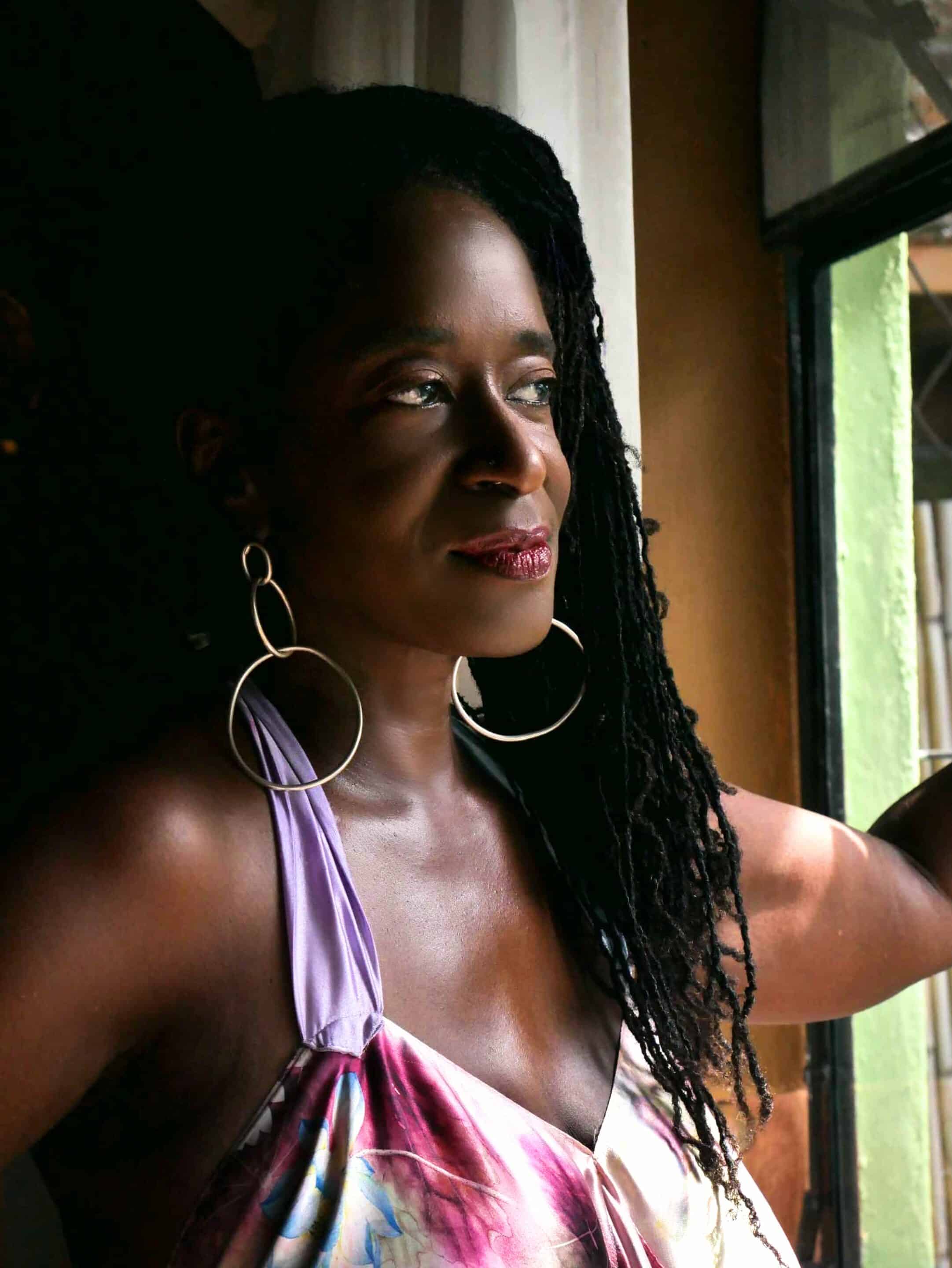
I was so fascinated with understanding how this cultural, spiritual, and sonic inheritance all worked that as an undergraduate at Georgetown University I enrolled in the African Studies Program to earn one of my degrees—the other was in literature where I also studied poetry from around the world. I ended up going to Nigeria to do a comparative study of ecstatic prayer, worship, music, and chants as tools for creating and transmitting culture and spirituality through these churches called aladura (al-a-doo-ra) very similar to the ones I grew up in back in Philly. It took my understanding of my musical heritage to a deeper level. I even learned basic Yoruba and took a class with Wole Soyinka thus beginning a lifelong immersion in Yoruba as well as Afrodescendant culture and music worldwide, leading to my doctorate.
Although I applied my education in the field of global philanthropy and finance, as well as technology, music with literature, poetry, and dance were my first true loves. My career allowed me to travel the world and hear sacred music from many places including prayers and chants from India and Muslim countries that I found moving in my Christian-based, spiritual approach to what people call jazz and blues for commercial purposes, although, for me, I think of it as my ancestral sonics and vibrations.
Stanford University’s Summer Jazz Workshop about 10 years ago was a pivotal moment in my formal education as a vocalist as has been the coaching of masters from the late Dr. Bernice Johnson Reagon. Now I’m blessed to have amazing Jazzmeia Horn as a teacher as I continue to hone my own authentic, heritage-rooted style for new times. I feel like I have come full circle and am still growing, writing and presenting what I consider contemporary ancestral music, drawing from my Afrodescendant roots to speak to all people today.
“The song explores the connection between music and ancestral wisdom. How do you see Afromusic as a bridge between generations and a source of spiritual grounding?”
For me the music of our elders can carry their voices, wisdom, and spirit, if we listen intently. It first starts at gestation as we embody our mother tongue and its associated rhythms, melodies, and implicit messages even before we’re born, creating potential lifelong, foundational sonics and intergenerational links. It’s been interesting to experience this with my mother as she goes through the transformations of advanced dementia where music or sound are her most indelible memories.
Unfortunately, my mother is mostly nonverbal now and doesn’t move or dance much any more. But once “Mother Tongue Mantra” was released, I visited her to play it for her. She suddenly became animated and tried to move her shoulders to the song while snapping her fingers, while exclaiming, “Jack, you done good! That’s our sound, our family’s sound! It’s gonna be alright!” Given the song’s origin as a gift from my maternal grandmother in a dream, it was a truly profound moment emphasizing the power of sound to connect generations, carry memory, transmit culture, joy, peace, and maybe even at least a temporary sense of healing.
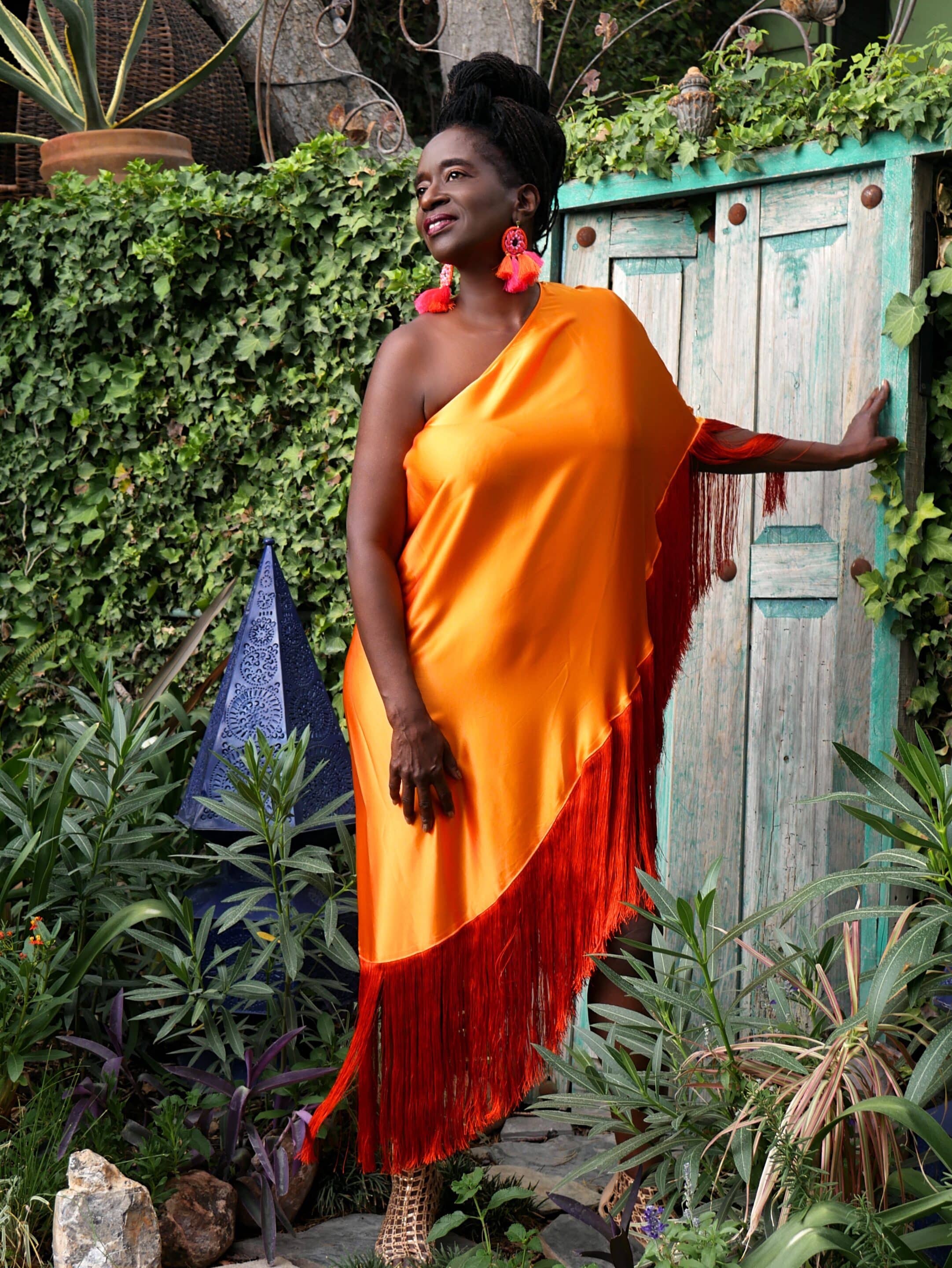
Much of our Afromusic heritage is a tool to create joy and freedom from personal and societal suffering. Even though our African drums and instruments were made illegal during the transatlantic slave trade, we kept and transformed, language, music, dance, oratory, cuisine, and more from our ancestral homelands to create unique cultural legacies that shaped the USA and the world in many ways. As is well documented, our ancestors even created the American banjo adapting their memory of similar African instruments that were banned in the USA and in other countries in the Americas that had slavery. It’s no wonder that our music such as blues, jazz, R&B, rock, hip hop and more is a soundtrack of the world.
Of course, I didn’t know all this as a child growing up in this sonic heritage learning a specific way of hearing and vocalizing the world, history, emotion, and creative expression. But as I became trained in anthropology, I realized that much of the rhythmic and melodic elements of the sounds I grew up with retained the basic tones of influential and very resilient West and Central African music and languages. Because of my deep roots as an African American exposed to the beauty of Yoruba music, chants, prayers, and language from age 17; studying or living in Brazil; and Mexico, I believe my music can be a bridge across the AfroDiaspora, all humanity, and even the natural rhythms and sounds of the elements. The world is very disjointed now and on a potential path of self-destruction. Perhaps understanding and expressing the Afromusic’s transformative power, like it did in the music of the Civil Rights Movement, can create common ground for a better day. That’s what I hope to contribute to with this song and the forthcoming album based on it. I think it can touch more the hearts of more people than I did in my philanthropy career, although it’s still about sharing my gifts for the love of my culture and all humanity—my life mission and shat real philanthropy is all about.
“You wrote and produced ‘Mother Tongue Mantra’ yourself, with arrangements by Grammy Award-winning bassist Ben Williams. What was it like collaborating with him and the international ensemble from Mexico and Cuba?”
Jose James introduced me to Ben Williams back in 2020 when I told him I wanted to do a spiritual jazz album. I already had the concept and I knew that I wanted it to be Afrochant music, building on my diverse heritage and music exposure. I called it “blachanting” (pronounced Black Chanting) even at this early stage in my 2020 debut album’s development. Ben even has some southern roots himself and remembered some of the acapella spiritual singing from his visits “down South” as a youngster.
Although I had one song, “Tomorrow Love,” that I had written as a youngster, my initial intention was to do an album of mostly cover songs. Ben insisted that I needed to write mostly original songs for my debut album. It was a very intimidating charge especially since I was living between homes post-divorce and was having serious, potentially life threatening health problems at the time. The health issues ended up not being fatal but did require surgery while we were producing the album. My music had been a private, almost autobiographical spiritual practice and, initially, I was uncomfortable sharing it publicly.
Furthermore, although I am a very educated person, I did not have Ben’s Julliard level musical pedigree. One of the most humble, musical geniuses I’ve ever met, Ben told me, “The truth is that you have an authentic voice and soul for our music that many musicians have lost and people need to hear it. Just record the music that comes to you in your cell phone’s voice notes. Once you create the song, I can create the sheet music for all the parts. Just do you and keep your voice. Don’t worry about trying to sound like someone else.” Because I had a lot of pain and joy to manage in 2020, I followed his advice and the new music flowed freely. I wrote 9 of the debut album’s 12 songs.
For example, to calm myself as I took a sick friend to the hospital during Covid, I spontaneously wrote and sang repeatedly for three-plus hours what would become Blachant in the car to calm my nerves. I wrote “Holla!” while trying to productively channel my anger over the execution of George Floyd.
The song Ghosts of Our Past was based on a poem of the same name that I wrote during a transformative extended family reunion to South Carolina in 2011. The poem-song captures not only the words but the emotions I heard during that experience. This period is also when I felt my grandmother started visiting me in dreams with songs and prayers to bolster my faith and resilience—something I very much needed, as my life at the time was being shaped by many many crises that held hope for a better future. Ben was an excellent coach and music producer on the debut, “Blachant” project, giving me further confidence to share my soul’s music with a public audience. Although he wasn’t as deeply involved in “Mother Tongue Mantra,” I appreciate how his instrumental arrangements stayed true to my music.
I have been a global citizen since I was a teenager. It’s an extension of my interest in studying Diasporas as well as growing up in a neighborhood with Puerto Ricans and Haitians. I hear our shared African lineage in soul/R&B, regfage, and salsa. These days I split my time living in the USA, Mexico, and Brazil, which all have strong Afrodescendant music traditions and instrumentalists.
I recorded my debut album, “Blachant” in the USA in 2022. Then I recorded my 2024 second album, “ I Wish You Love, Brazil: Bouvier Live,” in Rio de Janiero where I also danced in its world famous Carnival, a dream come true. These days my music tries to fuse my Gullah Geechee sounds with Afrosensibilities from Yoruba, salsa, samba, bossa nova, and axe sensibilities into a coherent sound.
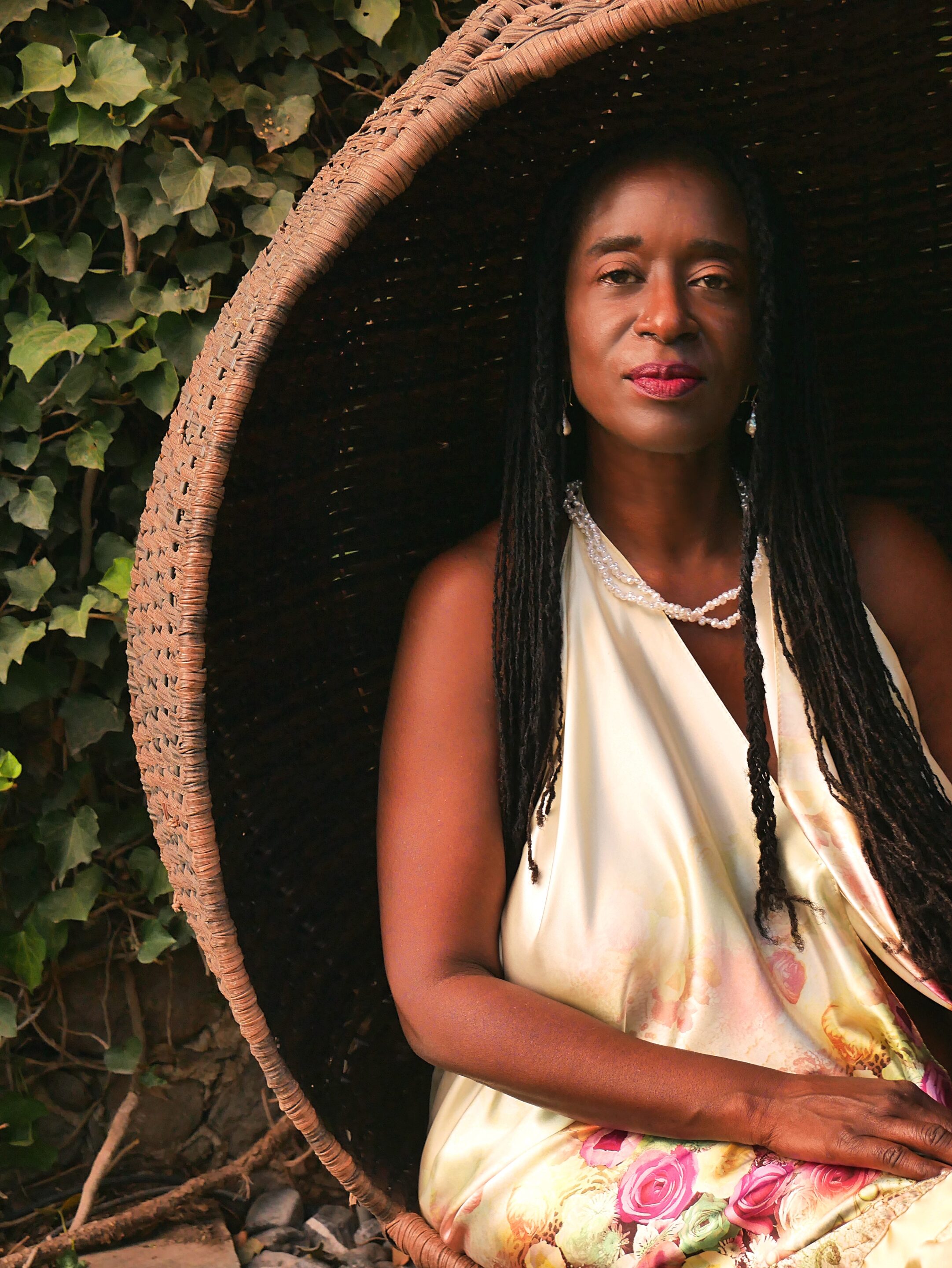
“Mother Tongue Mantra,” as well as two other songs that will be on my third album, were the first ones recorded in Mexico, which has some of the world’s best musicians, who can play many styles and genres. There are prominent and emerging Afro-Cuban musicians living here too. Carlos Vargas on piano; Sergio Carillo on Bass; Isi Capilla on drums; and Freddy Thomson add fantastic musicianship to the song further enhancing its emotional depth.
I’ll record the second half of the Mother Tongue album transforming some jazz and R&B songs into Afrodescendant covers with salsa, samba, bossa nova, Yoruba chant, and axe vibes, highlighting both the common African root and unique elements of these Afrodescendant elements in my vocal treatment too.
The musical conversation and mutual influence of different Afro-genres isn’t new. It’s just authentically in me as a global person of African heritage trying to interpret modern times musically. And it’s part of the history of American music history that I hope my music can convey on an energetic level. I’m also writing a book explicating the heritage, spiritual, poetic, and Afroculture influences of the songs I’ve written. I’m hoping it makes our cultural contributions more visible, and women’s role in it, more visible to listeners and the general public.
“The track is tied to your experience as a caregiver to your mother. How did that personal journey of caregiving and witnessing your mother’s strength shape the emotional depth of this song?”
Well, as I mentioned, the entire song came from an ancestral visitation by my maternal grandmother during a dream during which she was trying to comfort me. My further reflection during the ensuing weeks on the strong bonds of my grandmother and mother through song and spirit, which I also have tried to pass to my child in various ways morphed into the song’s lyrical poetry. It is a meditation, a blachant, not just on my grandmother’s or mother’s strength, but a realization that this same power is part of me and all mothers—women in general, likely some biological, spiritual law of the universe that binds all creation through divine feminine energy.
“‘Mother Tongue Mantra’ blends ancestral jazz with Afro-spiritual music and deep storytelling. How did you approach balancing these influences while maintaining a cohesive sound?”
I didn’t start off attempting to create a cohesive sound. The sound really came out of an effort to quell the fears of a pivotal nightmare that helped me accept my mother’s demise through the calming, improvisational humming of my grandmother during a dreamlike ancestral visitation. As I mentioned, I recorded the song in my phone the following morning. Scatted it over weeks as a prayer and meditation, crafted words around it, sang the fully formed song acapella to myself and family members for weeks, then sent it to Ben to arrange the instrumentation once I felt it was refined enough to convey the emotional moment, perhaps giving joy and calm to others as well. This song is the ancestral sonics of my ancestors designed to remind people who they really are and their power of our ancestors to heal us and for us to pay it forward despite life’s tragedies. We are all spiritual energy and this plane of existence is not the end—although, of course, people have differing, equally valid belief systems.
“You’ve said the song reflects on how mothers – both biological and symbolic – pass down knowledge through sound. What specific lessons or sounds from your own upbringing influenced the song?”
Well, I talked about the influence of Gullah Geechee inflections from childhood, the influence of diverse Afrodescendant and other sonics. I think every person and culture has a different way of hearing, seeing, feeling the world, its past, present, future, natural environmental elements, and cosmic energetic vibrations. Music is one of the ways we connect all the sounds of these experiences. I remember how my grandmother processed these sounds in her rhythmic humming and hymns. Sometimes I couldn’t understand her spoken words because she spoke a lot of Geechee. But her music—her cadence, laughter, sound of her gait, her life sonics never left me. It was and was likely in my mother, who first exposed me to these matrilineal soundscape, which each biological or sociological mother embellishes consciously or unconsciously. It is part of my ancestral heritage. I hear the rhythms, melodies, and harmonies of mother tongue, and incorporating my own experiences, craft its music to also be a more universal experience. Not everyone will like it. But it is authentically me. And paraphrasing Jon Batiste, “Whoever needs to hear the music will hear it and receive it.” This music-making has always been a spiritual process for me and always will be.
“The track is being released on International Women’s Day. How does the theme of feminine strength and maternal wisdom tie into the broader social message you hope to share with this song?”
The song shares an embodied personal revelation about the ways mothering and feminine energy shaped our very constitution, history, future as an elemental force of the cosmos. As a person of faith, even one who went to seminary anc has been studying religion, physics, and spiritually most of my life to evolve, I certainly believed that my mother would have some sort of life of consciousness after the body expires. But the intense process of creating this song was an embodied epiphany about the so-called aftdrlife. I realized that my grandmother, my mother, my child, and me are part of an unbroken line whereby ancestral energies as passed through each generation as part of a broader process of Creation. Even with the broken lines of conscious cultural memory from our experience of slavery and colonialism, through song and other processes, the essence of Afroculture is inherited through mothers although we’re often written out of history. It’s why in my video for the song, I pay homage to the Mothers of Spirituals, Blues, Jazz, and Rock. If we can internalize our mothers’ music, it can help us embody the strength of our ancestors, reshape and share it for new times.
Our mothers ancestral echoes persist as they create, keep and transform our very being and our culture based on resilient, sacrificial true love that drives all life and creation. Our mothers’ legacies are strong and undying at multiple levels: personal, societal, planetarily, cosmically, and their music immortalizes their ancestral energy for all times. May my mother’s and all mothers’ spirits live for eternity as we channel their music and vibrations across generations.
“You’ve drawn inspiration from Yoruba sacred traditions and Civil Rights-era jazz. How do you see ‘Mother Tongue Mantra’ continuing the legacy of music as a tool for healing and activism?”
I was fortunate to once have the late, great Dr. Bernice Johnson Reagon as a mentor while I worked for her first as an intern and later as a consultant in the Program in African Smithsonian working in the Smithsonian Institution’s National Museum of American History and Culture. Dr. Reagon is a pioneering Civil Rights singer-composer, cultural historian of African American music, curator, professor, and co-founder of the influential acapella singing ensemble, Sweet, Honey, and the Rock. Initially I did a study of African American hair sculpture as an artistic medium.
Then I helped her organize African American music education and festivals to preserve, advance, and educate about Black music history and culture. This was all in the early 1990s when my child was born and I was finishing my two masters and doctoral degrees in anthropology and design at University of Pennsylvania. In fact, I started raising my child in our family’s sonics and specifically Dr. Reagon’s Sweet Honey music. I didn’t even fully realize that I too was a part of that music heritage because I was so busy studying and programming it for others as a struggling graduate student and struggling new mother.
It was then that I began to understand the power if our music to retain and transmit not just culture but embolden activism for change nig just in the Civil Rights Movement but also in my own life as a form of meditation, prayer, and empowerment. My hope is that my music similarly gives all people hope and strength, while preserving and advancing the inspiring Afrodescendant music heritage for all people in new times and future generations.
“Your music merges sound, spirit, and social change. What impact do you hope ‘Mother Tongue Mantra’ will have on listeners and the broader cultural conversation?”
I call my music contemporary ancestral music or jazz because it’s rooted in my authentic Afrodescendant heritage bequeathed to me by my ancestors even before birth as a form of vibrational energy and power. I hope that through my music that people get in touch with their mother tongue, the musical, vibrational language that channels their history and can shape the future for the good of humanity and the planet. It can calm the soul and root the spirit in love of self, humanity, and all Creation. It can be cathartic, releasing anger, anxiety, and negative emotion until nothing but love and joy remain. I also hope that all people can see that we (Afrodescendant people) sing the way we sing, not just as an expression of individual creativity but our history and culture, which has a certain sound signature. In fact, we have a culture that shapes us. We are not the people without history or culture. And our heritage has made a positive difference for the world and that women are at the center of it leading and loving too. This remains true even when various forces try to ban Afro or women’s history and contributions.
I hope Mother Tongue Mantra, and the forthcoming album of which it’s a part, can activate all these sentiments, propelling people to personal and community action. It shares my family’s ancestral sonics with the hope that listeners raise awareness of Black music’s roots, impact, and continuing relevance while conveying a taste of healing and hope for all people. It represents my full embrace of myself as a humble part of our proud Afromusic heritage. Ancestor Jones, I surely “have something to say.” Amen. Ashe. ᐧ

